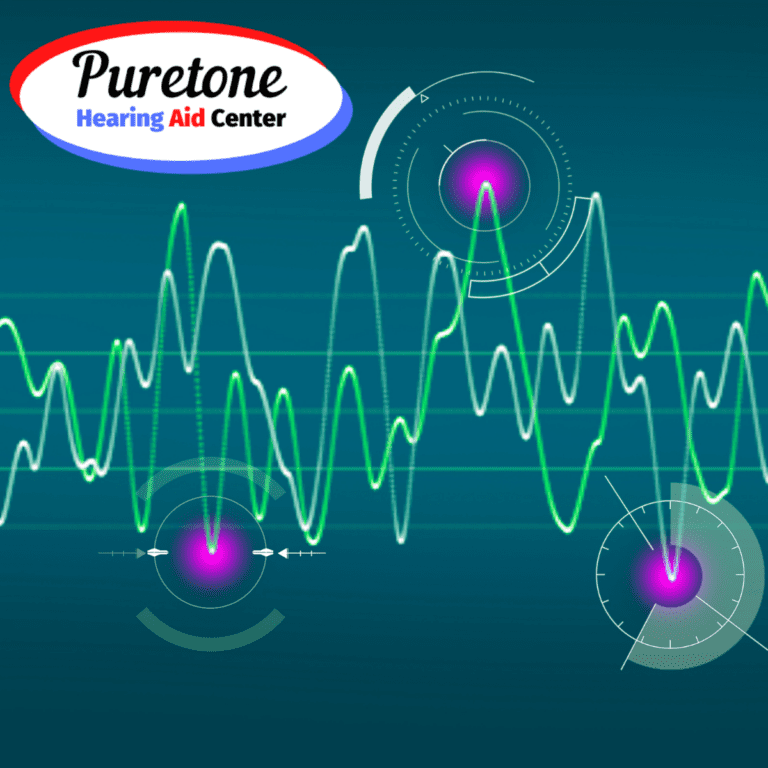Understanding our hearing capacity and the factors that influence it is crucial for maintaining good auditory health. Puretone Hearing Aid Center, with its extensive experience in audiology, is committed to helping individuals understand the impact of different frequencies on our hearing abilities. In this article, we will delve into the intricate relationship between frequencies and hearing, shedding light on how it affects our communication and daily lives.
Understanding Frequencies and their Role in Hearing
To comprehend the impact of frequencies on our hearing, we must first understand what frequencies are and how they are measured. Frequencies refer to the rate at which sound waves vibrate, and they are measured in Hertz (Hz). The human hearing range spans from 20 Hz to 20,000 Hz, with different frequency bands contributing to various aspects of our auditory perception.
One crucial concept related to frequencies is pitch. Pitch is our perception of how high or low a sound is, closely tied to the frequency of the sound wave. Higher frequencies are perceived as high-pitched sounds, while lower frequencies are associated with low-pitched sounds.
The Impact of High Frequencies on Hearing Capacity
High-frequency sounds play a significant role in our everyday lives. They enable us to hear the chirping of birds, the rustling of leaves, and the delicate sounds of music. However, prolonged exposure to loud noises, aging, genetic factors, or certain medical conditions can lead to high-frequency hearing loss.
High-frequency hearing loss can have profound consequences on our ability to communicate effectively. It often affects our understanding of speech, making it challenging to follow conversations, particularly in noisy environments. Additionally, it can diminish our enjoyment of music and our ability to perceive subtle sounds in our environment.
The Impact of Low Frequencies on Hearing Capacity
While high frequencies are vital for capturing delicate sounds, low frequencies also play a significant role in our auditory experiences. They allow us to appreciate the deep tones of music, the rumbling of thunder, and the low voices of individuals. However, like high frequencies, prolonged exposure to loud noises or certain medical conditions can cause low-frequency hearing loss.
Low-frequency hearing loss can make it difficult to understand speech with deeper voices, and it may even hinder our ability to fully enjoy bass-heavy music or detect environmental sounds such as car engines or doorbells. It can be particularly challenging in situations where speech clarity is essential, leading to communication difficulties and feelings of social isolation.
The Importance of Balanced Hearing across Frequencies
To have healthy and well-rounded auditory experiences, it is crucial to achieve balanced hearing across all frequencies. Imbalanced hearing, whether it is a loss of high or low frequencies, can disrupt our ability to perceive the world fully. Individuals with imbalanced hearing may struggle to understand certain speech sounds or miss out on important auditory cues in their environment.
Fortunately, advancements in audiology and hearing aid technology have made it possible to restore balanced hearing. Hearing aids can be customized to address specific frequency needs, allowing individuals to regain their ability to hear high and low-frequency sounds effectively. By restoring balanced hearing, individuals can once again engage in conversations, enjoy music, and experience the world with greater clarity.
How Puretone Hearing Aid Center Can Help
Puretone Hearing Aid Center offers a comprehensive range of services and expertise to address hearing loss and provide customized solutions. Their team of audiology professionals can assess your specific hearing needs, conduct thorough evaluations, and recommend appropriate treatments.
Puretone Hearing Aid Center offers a variety of hearing aids and technologies designed to address different frequency needs. From discreet behind-the-ear devices to in-ear options, their experts will guide you in selecting the best solution for your unique requirements. With their support, you can look forward to improved hearing and a better quality of life.
Don’t just take our word for it – hear from Puretone Hearing Aid Center’s satisfied patients. Mary, a regular customer, shares, “After struggling with high-frequency hearing loss for years, I finally decided to seek help from Puretone Hearing Aid Center. Their knowledgeable staff recommended a hearing aid that addressed my specific needs, and I couldn’t be happier. Now, I can enjoy conversations and appreciate music like never before.”
Understanding frequencies and their impact on our hearing capacity is vital for maintaining good auditory health and overall quality of life. Whether it’s high or low-frequency hearing loss, achieving balance across all frequencies is key. Puretone Hearing Aid Center’s expertise and range of hearing aids and technologies are there to help you regain your balanced hearing, allowing you to fully engage in conversations, enjoy music, and experience the world with clarity. If you have any concerns about your hearing, don’t hesitate to seek professional assistance from Puretone Hearing Aid Center – your partner in better auditory health.



